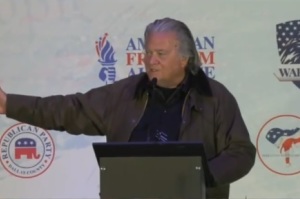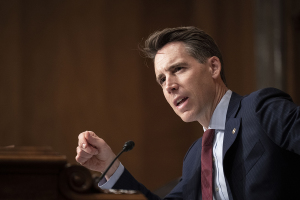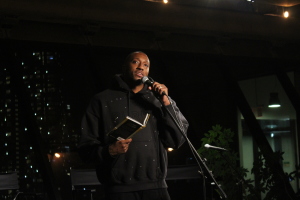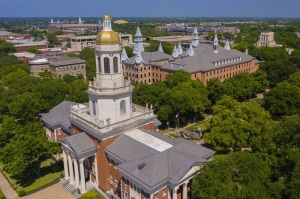The sacredness of every human being
In the United States, history tells us that Old Testament teachings have combined with New Testament declarations to proclaim the sacred interior life of every human being – each created in God’s image (Gen. 1:26-27).
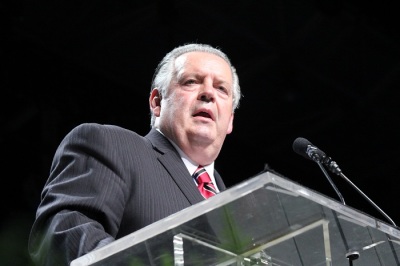
This sacred interior space, often called the “soul,” received prominence of place in the nascent nation’s first official document, the Declaration of Independence. On behalf of the new nation, the Continental Congress proclaimed to the world, “We hold these truths to be self-evident that all Men are created equal, that they are endowed by their Creator with certain unalienable Rights, that among these are Life, Liberty and the Pursuit of Happiness.”
As they won their independence from Great Britain the new government of the United States, struggling “ to form a more perfect Union,” ratified what we now know to be the U.S. Constitution ratified in September 1787.
This new American Constitution, along with the Bill of Rights (comprised of the Constitution’s first ten amendments, ratified in 1791) represented a new theory and kind of government, one in which the government gained its power from the consent of the governed and minority rights were protected from majority suppression.
This rather simple sounding concept was absolutely revolutionary in the world of the eighteenth century. Over the next more than two centuries it has proven to guarantee and protect more basic human rights than any government yet conceived and incorporated on this planet.
And, thanks be to God, over that expanse of time it has produced brave men and women of faith who understand the inviolate, sacred integrity God envisioned and planned for every human being. This has produced citizens of great and noble courage with an unshakeable sense of human dignity.
A beautiful illustration of this is Mr. Jack Phillips, the proprietor of the Masterpiece Cakeshop in Lakewood, Colorado. Mr. Phillips, a devout Christian, on a summer afternoon in July 2012 declined to bake a wedding cake to celebrate a same sex union.
Immediately, the “cancel culture” war machine mobilized against Mr. Phillips and his little bakery. They believed that he must be forced to conform under penalty of law and bake the cake and thus affirm same sex unions. The Colorado Civil Rights Commission began a legal campaign against Mr. Phillips that the U.S. Supreme Court would eventually label as harassment.
Jack Phillip’s response to this campaign of vilification (“his objections must be simple prejudice; religion is just an excuse”) went through the entire legal system until the Supreme Court upheld Jack Phillips’ right to freedom of conscience (7 to 2) in Masterpiece Bake Shop v. Colorado Civil Rights Commission.
Now, Mr. Phillips has written a book relating his almost decade long struggle to live out his understanding of how God desires for him to use his God-given talents in living out God’s purposes for his life.
In The Cost of My Faith, How a Decision in My Cake Shop Took Me to the Supreme Court, Mr. Phillips narrates his struggle and the attacks on his character and physical person that he has endured.
He then asks the $64,000 question,
Why not just bake the cake? Mr. Phillips’ answer to the question is
brilliantly and beautifully illuminating. He says, “My objection is
never to the person. . . asking me to create a cake with a particular
message. My objection . . . is to the message itself. I can and
cheerfully will serve anyone. I cannot and won’t communicate every
message.”
Jack Phillips, in telling his story, discovers and displays a God-given talent for the written word that rivals his breathtaking skills as a baker and decorator of cakes.
Here is a riveting and moving example:
My beliefs are what make me who I am. My commitment to God and
to . . . his holy word is the defining premise of my life. . . and the
guiding direction for my actions. If you ask me to separate all of that
from my work. . . I simply can’t do that.. .It’s like asking a contractor to
build a great building, but first remove the foundation.
Then he asks what is really the crucial question:
Where do we think artistic creativity comes from? Something
outside of ourselves. Of course not. It’s water from the foundation of
our soul. It comes from a deep- down place inside each of us where
our experiences, our understanding, our intentions, our deepest
beliefs and convictions all stir together. These can’t be separated
from each other anymore than you can sift out the various
ingredients from a cake after it is baked.
Mr. Phillips goes on to explain that he does not disrespect anyone and affirms everyone as made in the image of God – and “as a person worthy of respect.”
He understands any talents he has were given to him by God and he has a responsibility to use these gifts to glorify God, not that which God disapproves.
Then he explains that demanding that he use his artistry to communicate a message that he believes is wrong is:
asking me to stop being me. . . . to deny the deepest convictions of
my heart. . .that’s not something any person has a right to ask of
another. . . or a command any government has the right to force one
of its citizens to obey.
Well said, Mr. Phillips. As the seventeenth century Puritan preacher Roger Williams, aptly put it almost four centuries ago. for anyone to force the conscience of another person on religious maters is “soul rape!”
May God lead our people to demand that our government continue to hold that the sacred inner space of our citizens’ souls is beyond the purview of any government or merely human organizations.
Dr. Richard Land, BA (magna cum laude), Princeton; D.Phil. Oxford; and Th.M., New Orleans Baptist Theological Seminary, was president of the Southern Baptists’ Ethics & Religious Liberty Commission (1988-2013) and has served since 2013 as president of Southern Evangelical Seminary in Charlotte, NC. Dr. Land has been teaching, writing, and speaking on moral and ethical issues for the last half century in addition to pastoring several churches. He is the author of The Divided States of America, Imagine! A God Blessed America, Real Homeland Security, For Faith & Family and Send a Message to Mickey.















